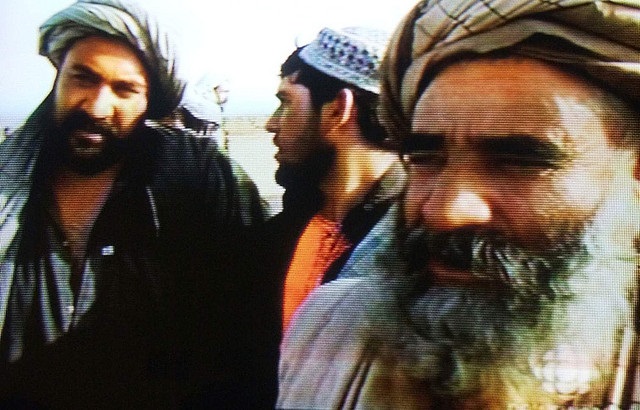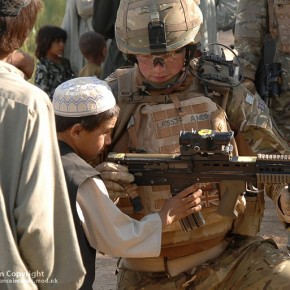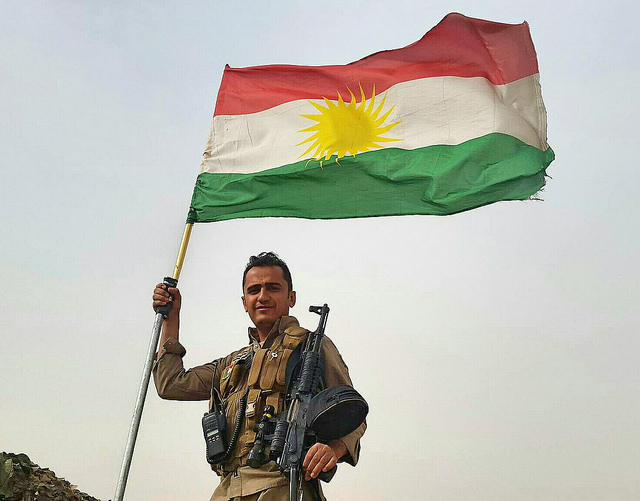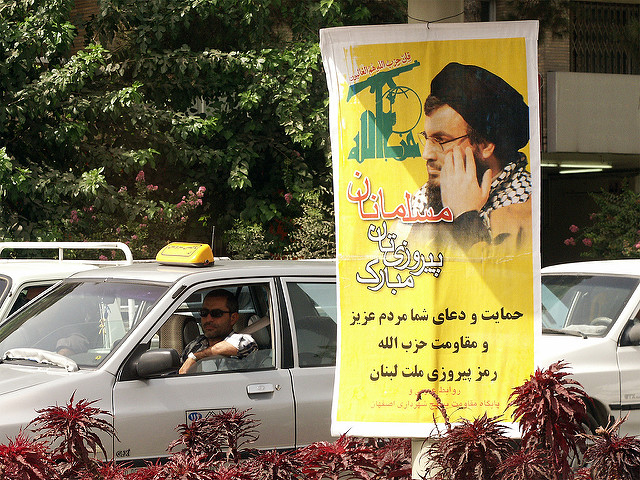The Islamic State of Iraq and Levant triggers a lot of Pakistani anxieties. The group’s activities in northern Iraq crystallize many fears about jihad and revolutionary Islamism. For many Pakistanis, especially if they are liberal elites, ISIS is being seen as the worst-case conclusion to the Taliban-led insurgency.
It’s all there: shariah law, the caliphate, harassment of minority groups, and talk of global jihadism.
It’s an interesting twist of history that the Pakistani military is invading North Waziristan at exactly the same time that ISIS entered Iraq from its strongholds in eastern Syria. Every time ISIS does something reprehensible, the argument becomes, “This is why we need to blow them out of Waziristan.” This isn’t illogical. After all, the Pakistani Taliban did seek to seize control of the northwestern province of Swat in 2007. It overran military positions, and quickly attempted to consolidate its power by establishing administrative zones and imposing Wahhabi interpretations of shariah law.
This wasn’t exactly ISIS’ approach, but for many people it is close enough. Ultimately, it took a full-scale military operation to flush the Taliban out and reestablish state control. As a result, the knee-jerk inclination is for Pakistanis to demand that these groups get destroyed before that even happens. Comparing the two movements is flawed, though, and it misses a lot of subtlety.
ISIS is not the Taliban for a number of reasons. Their most crucial difference is in terms of their overall worldview. The Taliban-led insurgency has a more provincial outlook, and its mostly rural and tribal membership mainly seeks to affect change in their own localities. It is debatable whether or not many of them even want to replace the government in Islamabad (although they certainly want it gone.)
ISIS, on the other hand, isn’t shy about pushing a program of jihadist expansionism that captures the alienated imaginations of its dominantly urban, educated, and Western membership. It crowned its leader Abu Bakr al-Baghdadi as a new Caliph on June 30 (the first day of Ramadan,) and its talk of a new Caliphate is relayed to us as sounding like an expansionist fantasy. This rhetoric has been a part of Salafi jihadism since the beginning, but only for particular movements. The Taliban may have tolerated people like this, which is why it hosted al-Qaida during the late 1990s, but it doesn’t actually espouse this same vision of global jihadism. The misconception that they do is probably the result of how mainstream experts have begun grouping everyone together under the term “al-Qaida and associated forces.”
This doesn’t mean that the Taliban won’t ally with ISIS. After all, it is now arguably the richest terrorist organization in the world. It would also be pretty embarrassing if the Taliban ignored such a high-profile realization of the alternative social and political structures that it has been pushing for over a decade. What this does mean is that the impact that ISIS will have in Pakistan is more limited than is widely believed. Talibani representatives like Abu al-Bawi have publicly supported the Baghdadi Caliphate, but so far, their statements haven’t really been different from the rhetorical support that they offered to the short-lived Islamic Emirate in northern Mali in January 2012. It is still early, though, and deeper links could still be established between the two groups.

However, what could be happening is that the Taliban is divided over how to deal with ISIS since it is surprisingly unpopular among jihadists themselves. The dominant opinion is that its savage brutality is excessive and unwisely alienates people from the idea of jihadist governance. Even Ayman al-Zawahiri hates the group.Earlier this year, he actually excommunicated ISIS from the al-Qaida umbrella altogether.
Western observers aren’t the only ones who have been shocked and dismayed by the horrific imagery of mass graves, vicious executions, and the desecration of Iraqi heritage sites. It seems clear that many jihadists are bothered by how ISIS fighters seem more obsessed with mayhem and ethnic cleansing than the mission to establish a “genuine” Islamic state. This wariness will negatively impact the influence that ISIS has on groups like the Taliban, even with its large amount of money and power. The War on Terror makes us forget that there’s a great deal of political diversity among terrorist movements themselves. It seems that ISIS’ ability to “inspire” other movements is being undercut by the fact that its approach to jihad is seen as having little practical worth.
There will be a far greater impact in overall violence against Pakistani minority groups. The most ghoulish stories about ISIS have primarily involved Christian and Shi’a populations. Since the Iraqi civil war began, discourses about these minorities and how they do not belong in the national consensus have been felt across the Muslim world. It has exacerbated divides between these groups and Sunni Muslims no matter where they are. The result will be that within Pakistan, the ISIS threat will make minorities feel more besieged at the same time that Pakistani Sunnis are tempted to become more intolerant against them. It’s an explosive combination that is made worse by an increasingly Wahhabi sense of Pakistani national identity, and the fact that anti-minority bloodshed has surged since the Taliban regrouped into a populist insurgency about a decade ago. Here, the inspiration from ISIS may also encourage some of the more nihilistic militants to be especially sadistic about their attacks.
The idea of ISIS will also continue to be important in Pakistani politics. With the invasion of North Waziristan in full swing, many domestic leaders are using the threat of jihadism to distract people from other social and economic problems in the country. The raid at Jinnah Airport last month really did come at the perfect time for the government, since many lower class Pakistanis and their middle class allies are getting increasingly annoyed with Prime Minister Nawaz Sharif and his brother Shahbaz Sharif. They have a number of grievances, including charges of electoral fraud, the shooting of protesters in Lahore Model Town, and a general feeling that they are using infrastructural development and the economy to further their own portfolios rather than the needs of the country.
This isn’t unique to the Sharifs, of course. Former Prime Minister Asif Ali Zardari did much the same thing, though his stance on economic issues was less conservative. The problem also extends past national politics. Muttahidi Qaumi Movement strongman Atlaf Hussain has always politicized those besieged feeling among Pakistani minorities to promote Karachi under his autocratic control as “Fortress Anti-Taliban.” The core point is that ISIS has given new life to an abstract Talibani threat, already galvanized by the Karachi attacks, that is being used to dismiss real concerns about industrial development and the limitations of Pakistani democracy. Even if ISIS disappeared tomorrow, this would still be going on. Baghdadi has irritatingly strengthened the argument by Pakistani elites that serious reforms cannot be pursued because there is always a jihadist assault on the horizon.
Interestingly enough, though, ISIS could eventually impact Pakistan in a more positive way. There is a reason that ISIS has been able to govern cities like Fallujah and Mosul. It isn’t actually ruling them directly. Max Fisher has written a great article about how ISIS has turned its attention to fighting and disseminating propaganda, while most of the day-to-day functions in these two major cities are being carried out by a coalition of tribes and popular militia groups (including some rebranded Ba’athists.) The arrangement isn’t democratic, but many residents actually prefer it to Maliki’s government (which is using armed groups that just executed over 250 Sunnis in ISIS-like fashion.)
It is very unlikely that this alliance between ISIS and local Iraqi organizations will last very long, especially if ISIS tries to force its allies to institute hardline shariah (a very similar alliance collapsed in northern Mali for the same reason.) However, it is an interesting experiment in the type of decentralized governance that could very well push the country towards new forms of participatory democracy. If it works in Iraq, then there will be a stronger argument for using the same approach in Pakistan. This all remains to be seen, of course, along with the nature of the relationship that ISIS will have with the Pakistani Taliban. At this point, though, the direct interactions are unclear, and the indirect ones are horrifyingly unsettling.
Photographs courtesy of RubyGoes and the author. Published under a Creative Commons License.





